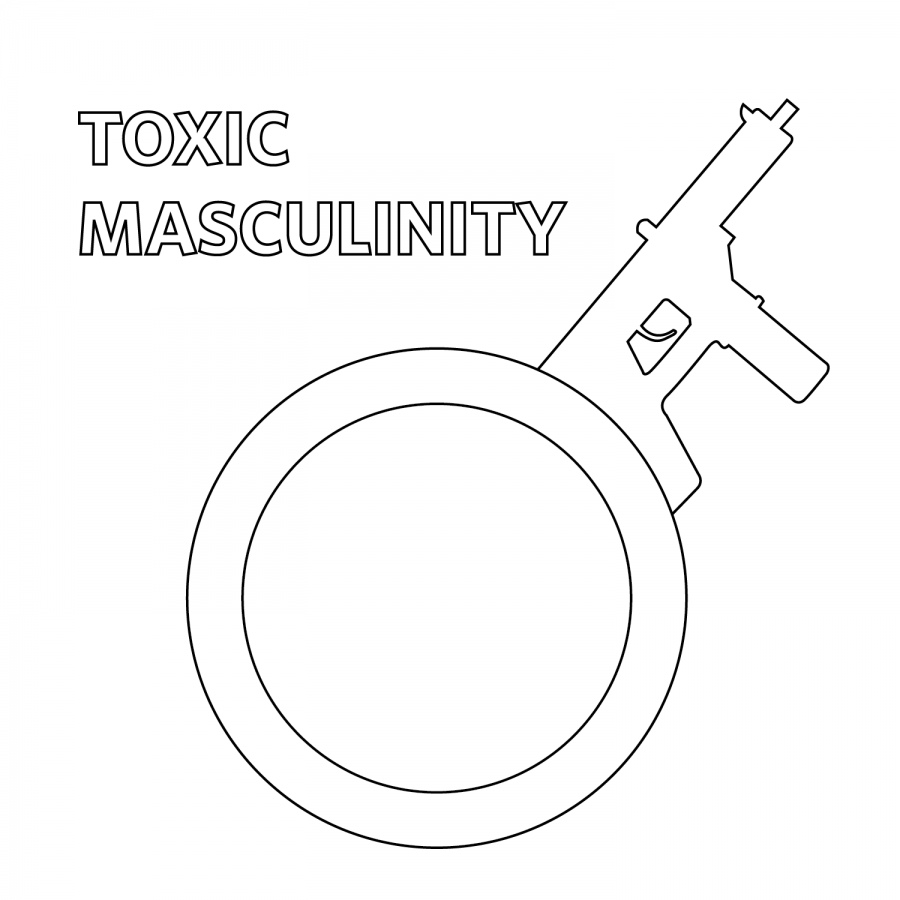Toxic masculinity, racism fuel shooting epidemic
Feb 28, 2018
Valentine’s Day plans were interrupted by an all-too-familiar news update: a shooter, Nikolas Cruz, had entered his former Florida high school with a semiautomatic weapon, killing 17 students and faculty. Debates ensued in the subsequent days with politicians from both sides of the aisle grappling with one looming question — how can we prevent this from happening again?
There has been a lot of equivocation on the part of NRA-backed congressmen and women regarding gun reform. And there’s been a lot of deflection on the part of our president to steer the conversation toward mental health. (How interesting that President Donald Trump finally found the time to talk about such an important topic). These are both pressing issues to discuss, of course. But what has been largely ignored by the public in the days since the attack is that Cruz subscribed to dangerous ideas rooted in racism and toxic masculinity.
Toxic masculinity is a psychological term created by Professor Tracy Karner in 1996, a then-Ph.D. student at the University of Kansas. She studied veterans of the Vietnam War and subsequent generations of American men. Her work showed that, after soldiers returned from war, many reported “a loss of power which had been an assumed privilege of white American manhood.” Such feelings result in overcompensation in order to affirm one’s manhood and prevent being emasculated — and for people, like Cruz, who hold these perspectives, emasculation seems to lurk around every corner.
A New York Times Op-Ed contributor, Michael Ian Black, noted a few days ago that the male identity being taught to boys today is outdated. It emphasizes strength, a lack of vulnerability and, above all, power. This definition of masculinity ignores the reality of what it means to “be a man.” As a result, boys like Cruz turn to violence and bigotry as an answer to their own self-image problems.
By now, it is no secret that Cruz was a troubled individual. His mother died of pneumonia in November of last year, and the family with which he was staying confirms that he was struggling with depression. Throughout high school, students noted his odd, often erratic behavior. He talked about guns, posted on social media about violence toward animals and stalked his peers.
Get The Daily Illini in your inbox!
These are shocking, unfortunate signs of a young man struggling with many obstacles in his life. But his mental illness is not a trait he shares with most mass shooters. In fact, mass shootings committed by people with mental illness make up less than one percent of the total homicides in America every year, according to the American Psychological Association.
But Cruz’s behavior, similar to other extremists, displayed his deep-rooted prejudice and toxic masculinity. While attending Marjory Stoneman Douglas High School, students feared Cruz because of his affinity for violence, according to a Time article. Most telling, however, are the copious amounts of racist, sexist, homophobic and anti-Semitic material on his phone. A CNN article summarized Cruz’s beliefs; “Cruz said he hated black people simply because they were black; Cruz hated Jews because he believed they wanted to destroy the world.”
Cruz’s white supremacist values are reflected across the country. Hate crimes, although not a new phenomenon in the least, are on the rise (up 20 percent in 2016, according to the Center for the Study of Hate and Extremism). Cruz’s actions are just an extreme example of the bigoted behavior by white people toward marginalized groups that has been observed for years but increasingly since Trump’s election. The manifestation of these hateful feelings is always violent. These beliefs inherently call for bloodshed. According to the Anti-Defamation League, white supremacists compose the most violent domestic extremist movement in the United States, “committing about 83 percent of the extremist-related murders in the United States in the past 10 years and being involved in about 52 percent of the shootouts between extremists and police.”
In light of Cruz’s similarity to violent extremists in the United States, it is not surprising that he lashed out in such a cruel manner. Of course, it is crucial that we as a nation come together to talk about gun reform. And we need to figure out how to positively address mental health issues. But make no mistake; Cruz is simply the latest installment of a long, bloody history of toxic masculinity and white supremacy.
Kyra is a freshman in LAS.






